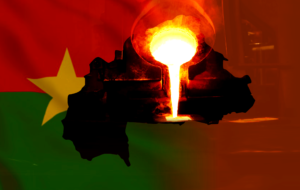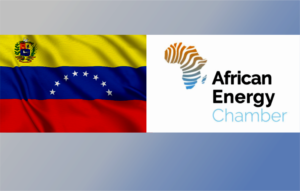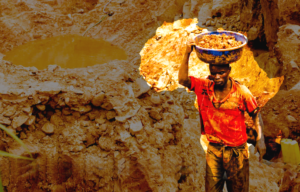Transforming Lives and Landscapes in Nigeria: ACReSAL Earns World Bank and Stakeholders’ Praise
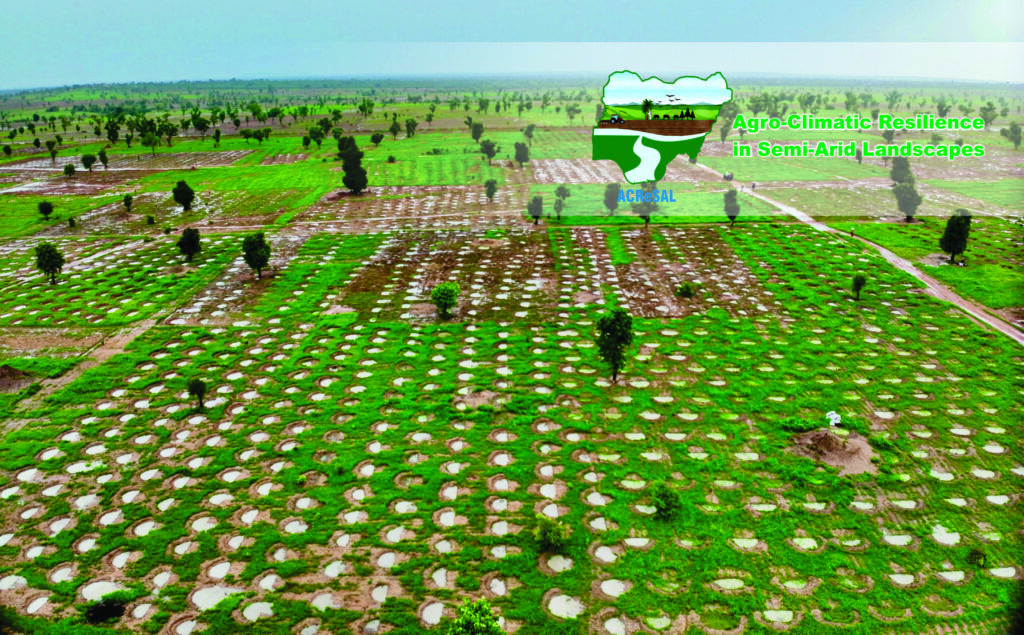
The Agro-Climatic Resilience in Semi-Arid Landscapes (ACReSAL) project is fast becoming one of Nigeria’s most celebrated development success stories. An initiative reshaping degraded landscapes, boosting rural livelihoods, and easing long-standing social tensions across the country’s semi-arid belt.
Launched in 2022, ACReSAL was designed to help Nigeria restore one million hectares of degraded land as part of the Federal Government’s broader goal of recovering four million hectares by 2030. Barely three years in, the project has restored 843,889 hectares, representing an impressive 84.3 percent of its target, through afforestation, erosion control, irrigation support, drainage desilting and a wide array of civil works. Upholding the consideration of human impact at the centre of the progress.
Although the environmental numbers are headline-worthy, ACReSAL’s most profound achievements are tied to people. In rural communities where climate shocks, poor soil productivity and water scarcity have long driven poverty and conflict, the project is giving families new tools for dignified survival.
![]()
Over 275 tractors distributed across 14 states have reduced the back-breaking labor of farming and increased food production. In the FCT alone, proceeds from tractor-supported harvests have exceeded ₦9 million, while Benue farmers recorded over ₦5 million in additional earnings. In regions where water scarcity fuels both disease and conflict, particularly between farmers and pastoralists, ACReSAL has drilled 724 solar-powered boreholes, giving thousands of households reliable access to clean water. The result permeates through, reducing communal clashes, improved hygiene, enable new micro-enterprises built around water access, etc.
The Project’s Community Revolving Fund (CRF) is now active in 361 communities, supporting 18,371 people. Many of these people are women. Enabling investments in agricultural and climate-smart enterprises. With 8.7 million total beneficiaries, including 4.1 million women, the project’s reach is both broad and inclusive, powering positive marketplace of results.
These impacts came to life at the recent ACReSAL Marketplace in Abuja, where communities, state governments, ministries and development partners showcased the project’s on-the-ground achievements. Dr. Joy Agene, Senior Environmental Specialist at the World Bank and ACReSAL Task Team Leader, described the event as a living testament to how massive investments are reviving degraded watersheds and enabling communities to thrive in changing climatic conditions.
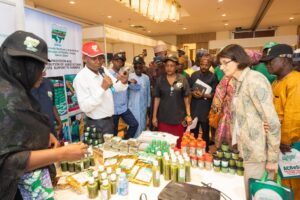
World Bank Environment Practice Manager, Mrs. Ellysar Baroudy, praised the project’s measurable results, calling ACReSAL a “glowing example” in the bank’s global portfolio.
“The before-and-after impact is striking. When we discuss financing at the World Bank, we look for results and sustainability. ACReSAL has shown both, and deserves all the applause,” she said.
Civically, ACReSAL has emerged as a unique example of federal/state collaboration, working smoothly in Nigeria’s often fragmented governance landscape. Ministries of environment, water resources, agriculture and finance have all aligned under a unified operational framework, painting an uncommon achievement.
The National Project Coordinator, Abdulhamid Umar, emphasized that the project is people-centered in design. Noting that vulnerable rural groups remain the core focus. Similarly, officials from the Ministries of Water Resources and Finance highlighted how the project has strengthened institutional capacity and created a foundation for long-term natural resource governance. Traditional leaders, often the most trusted authorities in rural communities, also voiced strong support. The Etsu of Kwali, His Royal Highness Luka Ayodee Nizassan III, credited the project with reducing hunger and bringing hope back to local households. “The project has come to terminate hunger in our community. The World Bank has invested rightly,” he said.
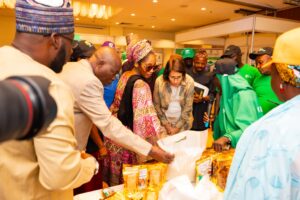
ACReSAL is helping Nigeria build structures that will endure long after donor funds end, far beyond immediate relief.
The Nigeria Integrated Water Resources Management Commission (NIWRMC) revealed that 20 Strategic Catchment Management Plans have already been completed, covering the northern hydrological areas. These plans, along with a newly established Hydrological Modelling Centre, are strengthening the country’s ability to manage floods, droughts and water allocation scientifically. And Policymakers are now developing long-term frameworks on land restoration, water conservation, catchment governance, climate change, etc., which are critical tools for sustaining progress.
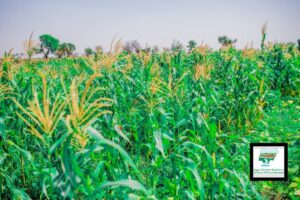
With a collective vision for a greener future, the Abuja Marketplace brought together national and international actors, ministries, traditional institutions, NGOs, communities and the World Bank, to affirm a shared commitment to building sturdy landscapes and secure livelihoods. Exhibitions by community beneficiaries offered powerful, human-centered proof: greener fields, higher yields, restored water bodies and stronger economies emerging from once known as struggling regions. A model of persistent support for community-driven development.
In its short lifespan, ACReSAL has demonstrated how innovation, collaboration and community ownership can transform both land and lives. From tackling climate threats to reducing rural conflict and empowering women, the project is offering a blueprint for climate-change development in semi-arid Africa.
ACReSAL stands out in its successes, by setting a standard with projects that deliver results and ensure sustainability.


